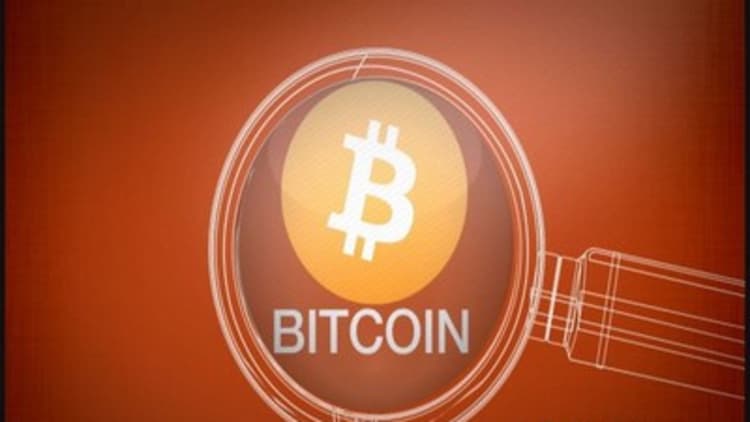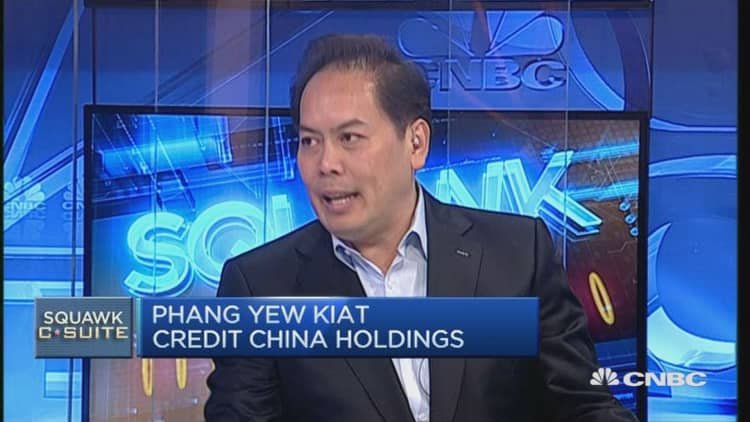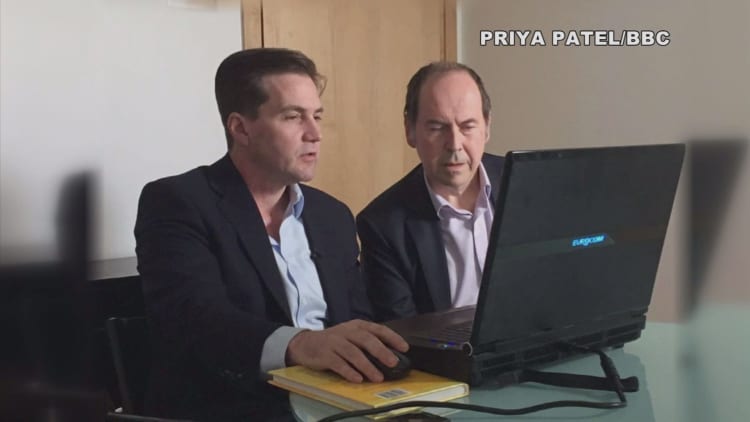


It is "overwhelmingly likely" that the financial industry will adopt uses for the technology underpinning bitcoin, former Treasury Secretary Larry Summers said.
"I'm reasonably confident ... that the blockchain will change a great deal of financial practice and exchange," he said Tuesday from the Consensus 2016 event in midtown Manhattan, adding that his bet on the future of finance would see "40 years from now, blockchain and all that followed from it will figure more prominently in that story than will bitcoin."
Summers referred to blockchain technology's ability to reduce inefficient frictions during asset transfers, but he sounded a much-less confident note about the cryptocurrency for which it was originally invented.
Still, Summers said he disagreed with 2015 comments from JPMorgan Chase CEO Jamie Dimon that virtual currency is "going to be stopped," and "no government will ever support a virtual currency that goes around borders and doesn't have the same controls."
"Jamie's a smart guy," Summers said. "But Bill Gates is a smart guy too and he said the internet's not going anyplace."
As for the cryptocurrency's future, Summers said several times that the government "will still enforce laws," but that certainty of bitcoin's demise is "not the right position to take."
But Summers also attempted to dash any hopes that bitcoin — which has been embraced by some pro-anarchism communities — could create anything like "a libertarian paradise." In fact, he said that existing laws about cross-border money transfers will "for sure, for sure, for sure" be changed to cover virtual currency.
Many firms are aiming to make Summers' prediction a reality, including Ripple, which hopes to use a variant of the technology to connect the global settlement network through the blockchain, and Circle, which is aiming to facilitate global peer-to-peer payments in part through bitcoin's network.
Blockchain technology has been the subject of increasingly ecstatic media and investor excitement as a fix for everything from medical records to global identification, but many at the blockchain-focused Consensus conference told CNBC there was an air of overhype.
"We don't think the blockchain can do most of what's been ascribed to it," Ripple CEO Chris Larsen said. "But we're entering the internet of value — and that is very much underhyped."
And while some investors and techies spent the blockchain-focused conference pitching how a secure, unchangeable global ledger (a blockchain) could supplant the existing global monetary system, others suggested it could take a more ironic role.
That is, the technology behind bitcoin could change money forever — by helping fiat currency be more efficient. Instead of a trustless network of economically incentivized database maintainers (called "miners" in the bitcoin community), a variant of blockchain technology would be employed by the very central banks that crypto-anarchists speak against, several projected.
For one, Digital Currency Group CEO Barry Silbert predicted that the U.S. Federal Reserve and the People's Bank of China will seek to digitize their current fiat currencies, issuing something akin to RMB-coin, or dollar-coin. That is, central banks will issue digitized tokens that represent their current currencies — but those systems' security will be underpinned by bitcoin technology.
There are a wide range of benefits for central banks ranging from tracking money's velocity and its usage to easier issuance of stimulus "helicopter" money, sources said.
"There's going to be an important distinction between central banks' coins and bitcoin," Silbert said Monday. "They're certainly not going to cap the output."
Bitcoin derives its value in part because of scarcity: It's hard-wired into the code that there will only ever be a certain amount of the token. Central banks, on the other hand, will want to be able to create more digital assets as monetary policy requires.
Silbert added that central banks' digital currencies, which he characterized as a likely outcome (if not virtual certainty), are "only going to enhance the government's ability to see what you're doing."
Reports from earlier this year have already indicated that China's central bank is considering using the technology.
"The PBC has studied digital currency for a long time. History shows that currency has evolved abreast with technological advances and development of economic activities," People's Bank of China Governor Zhou Xiaochuan said in February, according to the transcript of an interview with Caixin Weekly.
"With the rapid development of the internet and the significant changes in the global payment systems, it is necessary to establish the issuance and circulation system of digital currency, which will help build the financial infrastructure and improve the quality and efficiency of the economy," he added.
Within the U.S., St. Louis Fed Vice President David Andolfatto wrote earlier this week that "there is no reason why, in principle, central banks could not offer online digital money accounts for the public."
Citing advantages like eliminating deposit insurance and reducing the cost of maintaining paper currency, Andolfatto proposes a basic utility account, which would also make it easy to enforce interest rates (including negative ones). He's even gone further down the rabbit hole, discussing the idea of a "Fedcoin" in an earlier post.




